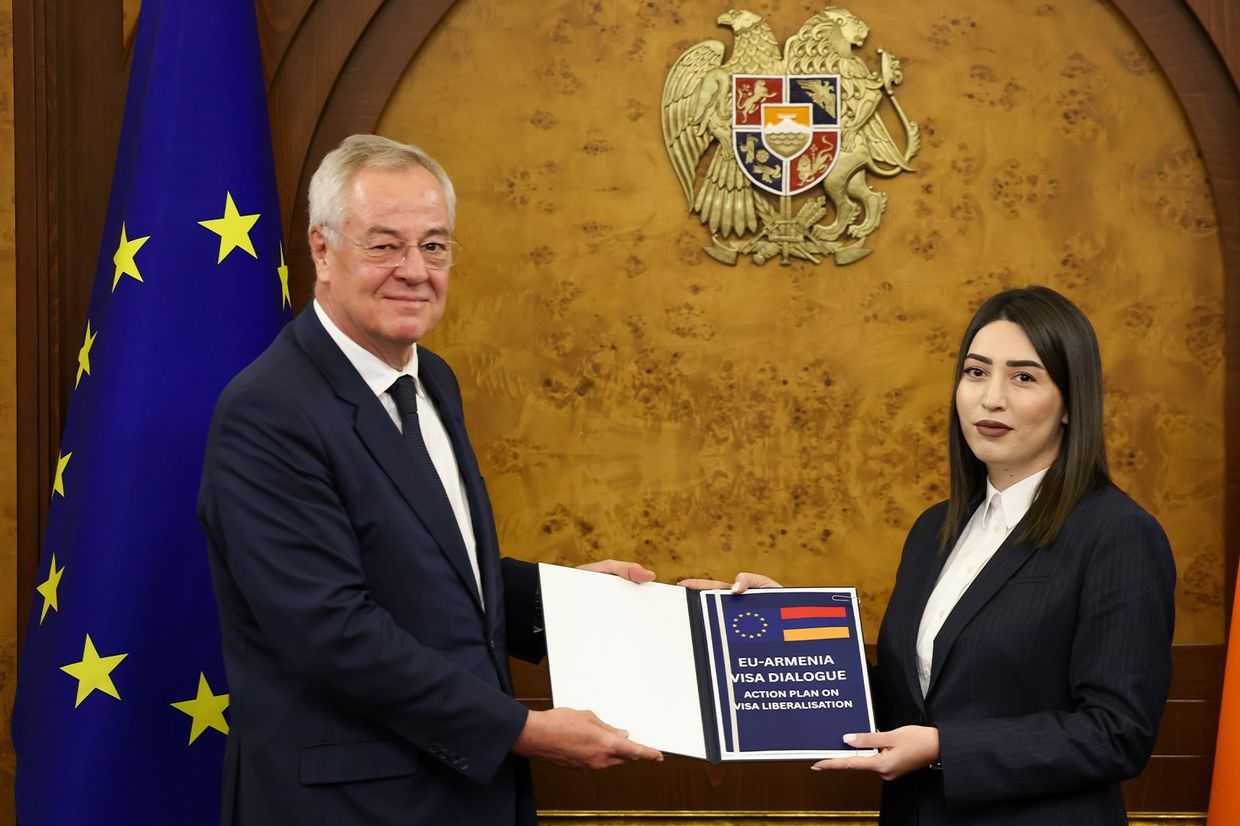
Since the pandemic hit Georgia in February, the Georgian government has taken several measures to raise awareness about it. But are the public actually well informed?
Since March 2020, the Georgian Government has been conducting large scale information campaigns through traditional and online media, has launched an informational web portal, StopCov.ge, and has even launched a smartphone app providing information about contact with infected people.
In light of these communications, it is perhaps unsurprising that data from the CRRC-NDI December 2020 survey shows that a majority of Georgia’s population says they have enough information about the services they might need in relation to COVID-19. However, men and those less well off are less likely to know how to access services.
The survey asked respondents if they knew where to get a COVID-19 test, how to get medical assistance, and how to treat COVID-19 at home.
People were most informed about how to get medical assistance. Around four in five said if they or a family member needed it, they would know how to treat COVID-19 at home.
A smaller proportion, though still a majority, reported knowing where to get a free or affordable test for COVID-19. Even so, almost a third of Georgia’s population does not know where to get a test and one in five reports not knowing how to treat COVID-19 at home.
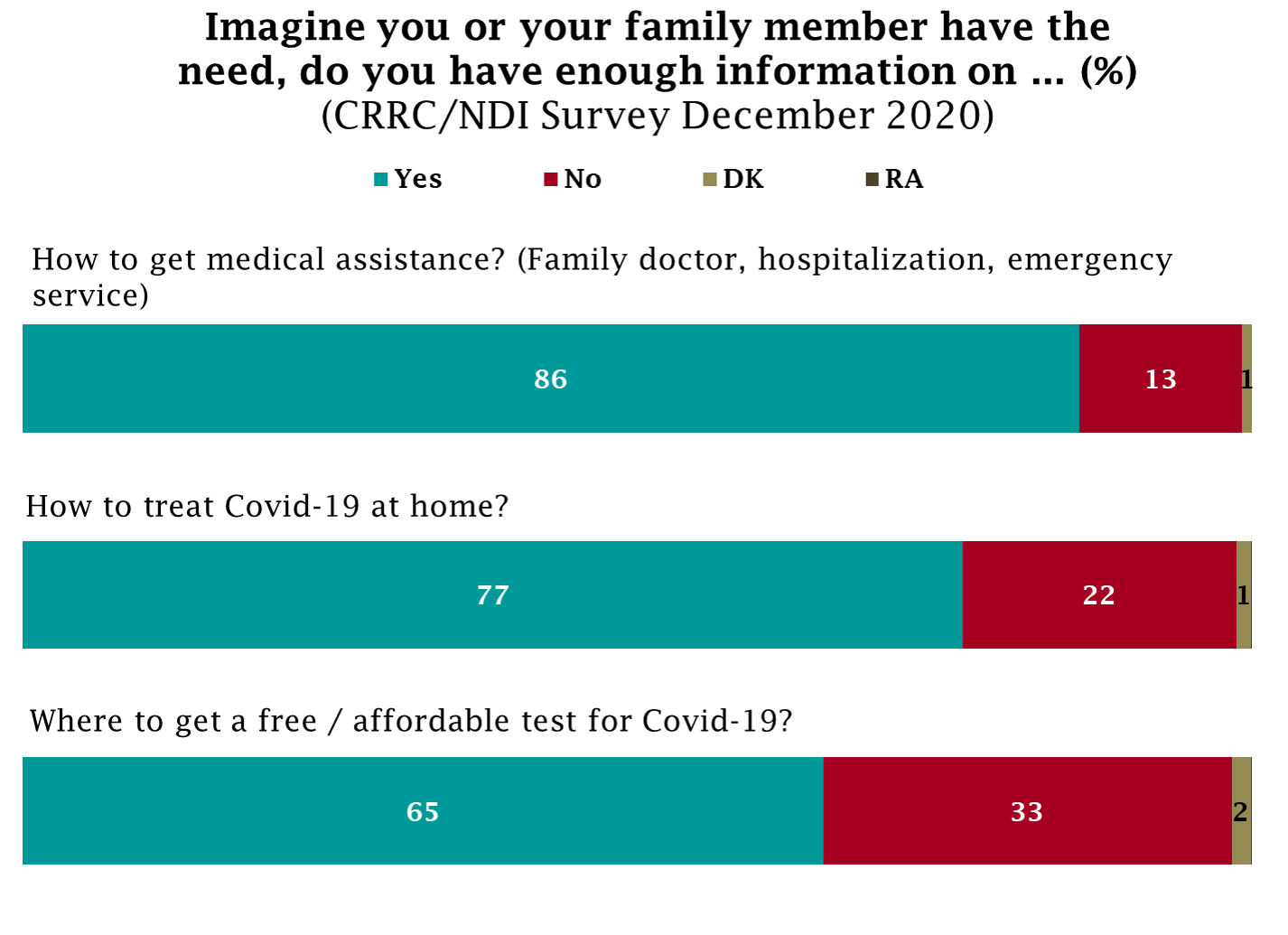
Even though this knowledge is self-reported, it is still important to pay attention to what people feel less informed about as well as who feels less informed.
A regression model suggests that even though the vast majority knows how to get medical assistance, women, people aged 18–34, and people with tertiary education are slightly more likely to say they know how to get medical assistance than men, people who are 55 or older and people with secondary or lower education.
The more durable goods a person owns (a proxy for wealth), the more likely that person is to say that they know how to get medical assistance. No differences were observed between people in different settlement types or employment statuses.
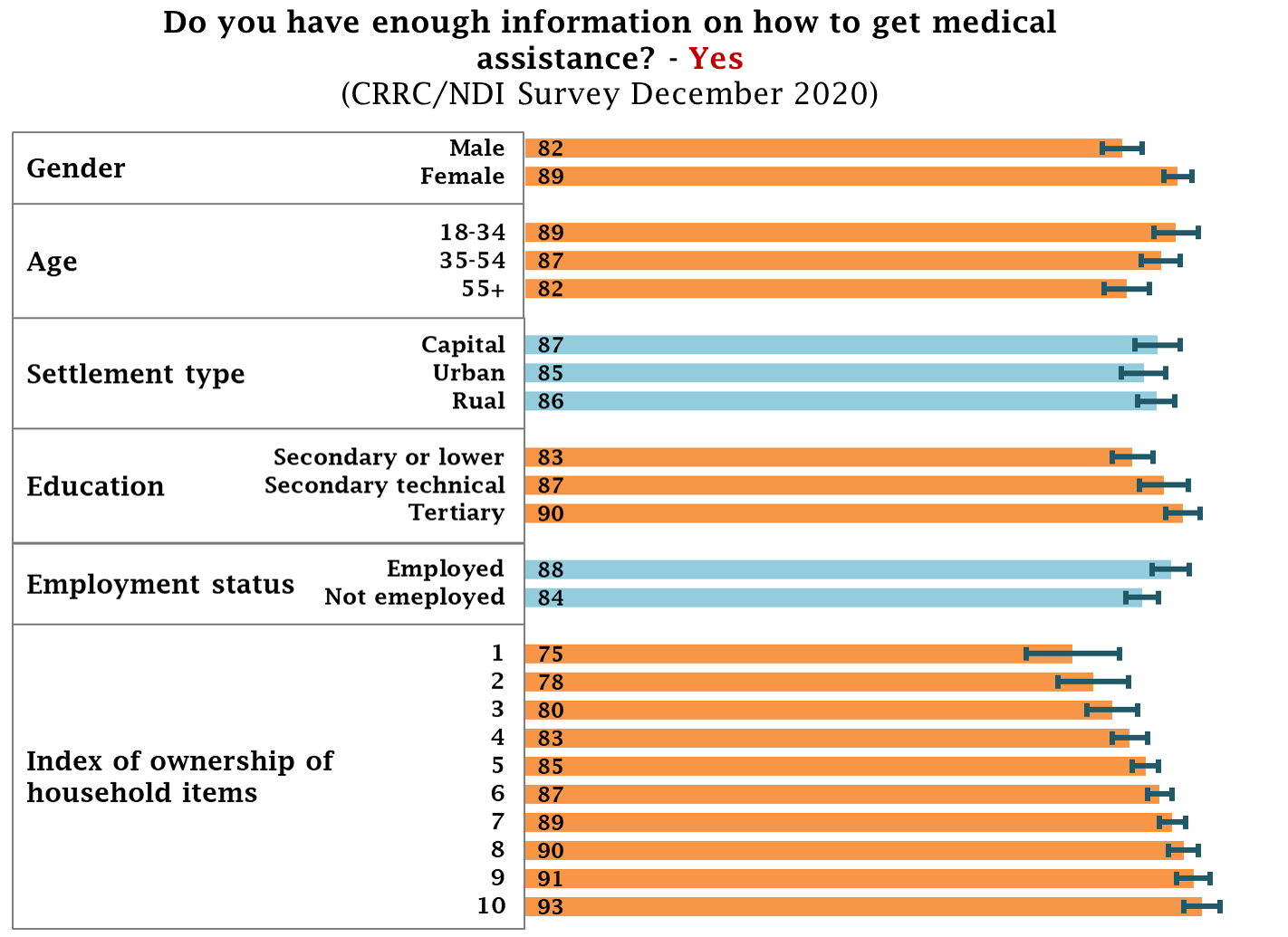
The regression model also shows that women and people with tertiary education are more likely to know how to treat COVID-19 at home than men and people with secondary technical, secondary, or lower education.
The wealthier a person is, the more likely that person is to say that they know how to treat COVID-19 at home. There were no significant differences between people of different ages, settlement types, or employment statuses.
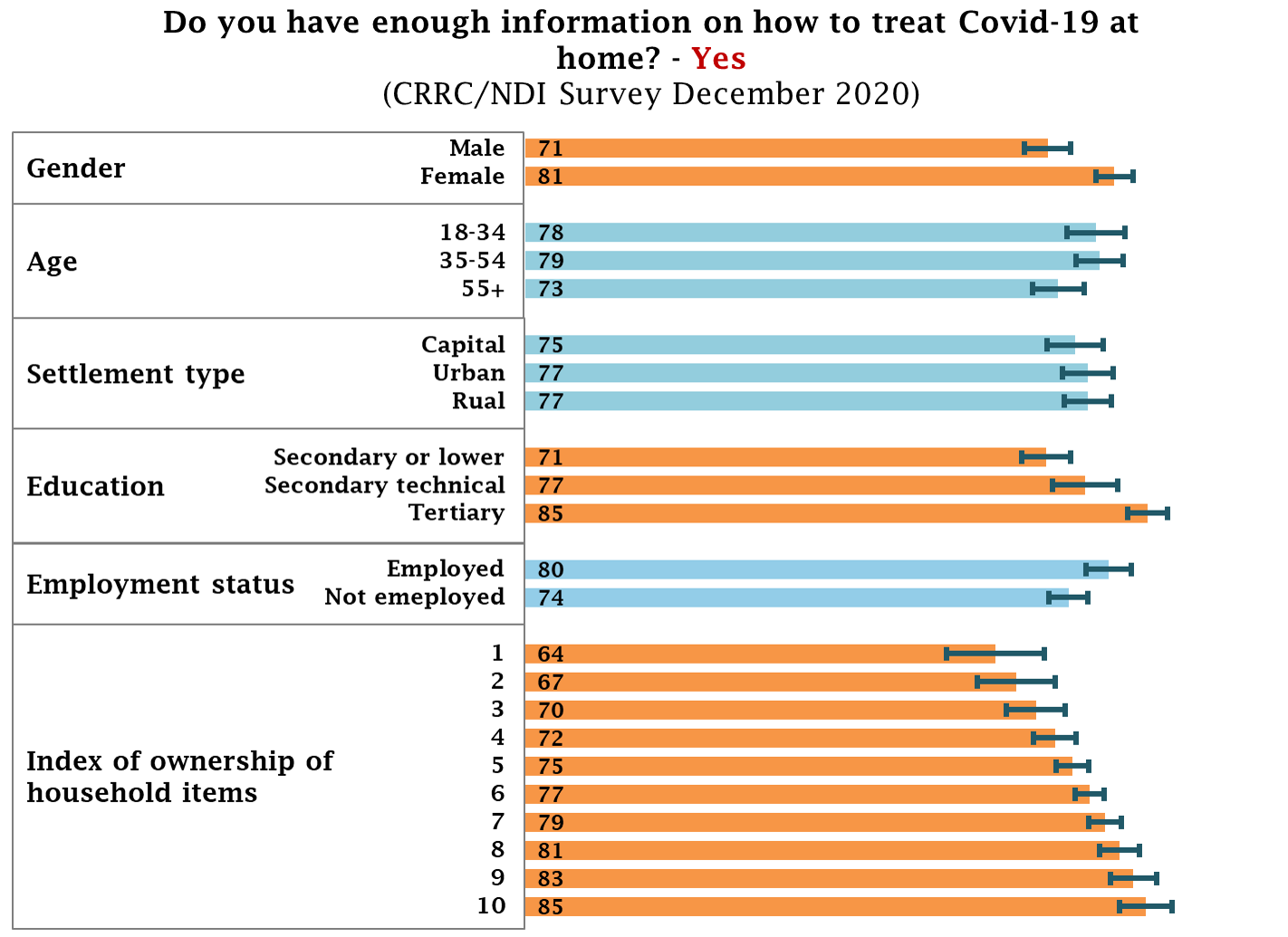
As for knowledge of where to get a COVID-19 test, the regression model suggests that women are more likely than men to say they know where to get a free or affordable test.
People with tertiary education were 1.3 times more likely to say they know where to get a test compared to people with secondary or lower education.
Employed people were more likely to say they knew where to get a free or affordable COVID-19 test than people who were not working. As in the case of knowing how to get medical assistance and treat COVID-19 at home, the more household items a person owns, the more likely that person is to say that they know where to get the test.
Again, there were no differences between people in different age groups or settlement types.
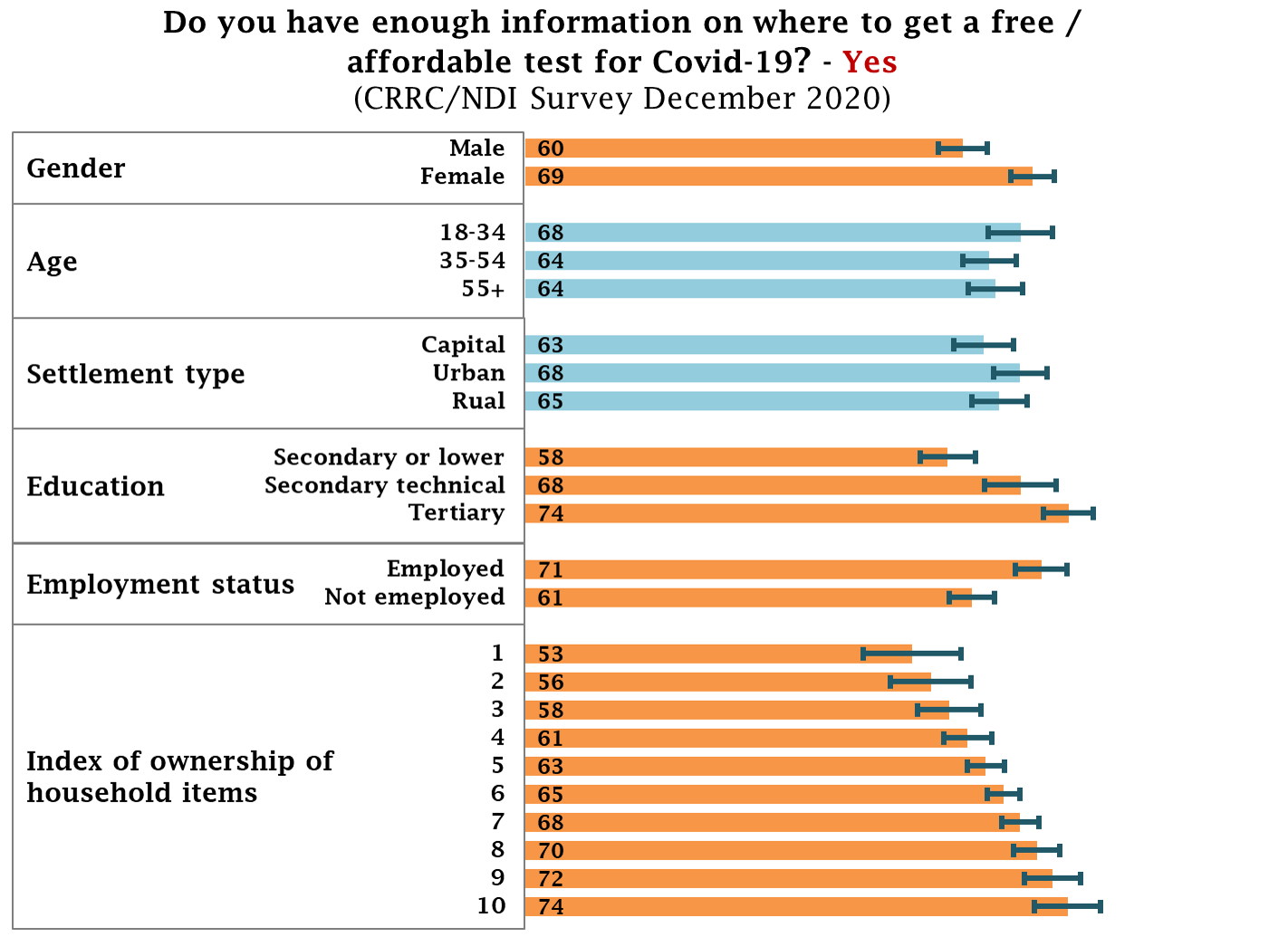
The December 2020 survey data shows that a majority of Georgia’s population reports knowing where to get a COVID-19 test, how to get medical assistance, and how to treat COVID-19 at home.
People appear least informed about where to get a test done.
Women and people with better economic situations consistently reported knowing the above mentioned more often than men and people with worse economic situations.
For more data on people’s attitudes towards COVID-19 related issues see the dataset on CRRC’s online data analysis tool. The views expressed in the article are the author’s alone, and do not reflect the views of CRRC Georgia, the National Democratic Institute, or any related entity.




